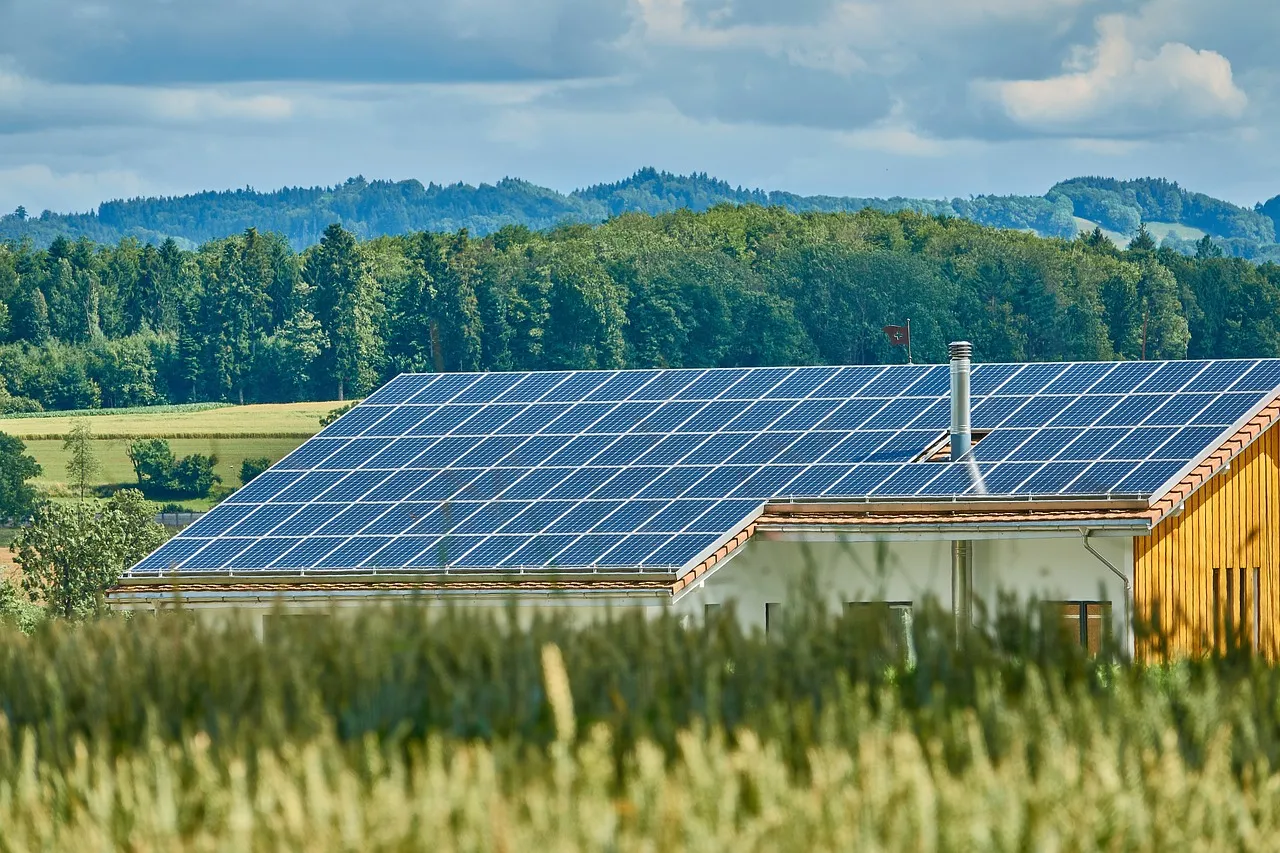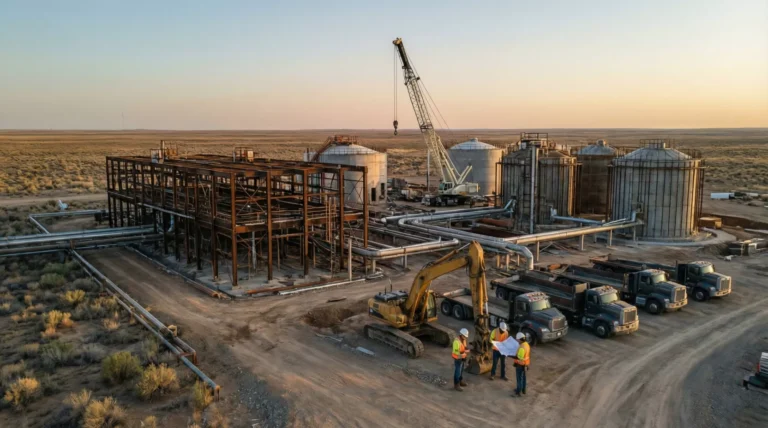
Quinbrook Announces Acquisition of Mallard Pass Solar Project, Marking its Second Major Infrastructure Initiative in the UK Energy Transition
Quinbrook Infrastructure Partners (“Quinbrook”), a prominent global investment management firm focused on infrastructure essential for the energy transition, has made a significant move in advancing the UK’s renewable energy goals. The firm has acquired the 350 MW Mallard Pass Solar PV project, located along the Rutland-Lincolnshire border in the East Midlands. This project is poised to become Quinbrook’s second nationally significant infrastructure project (“NSIP”) in the UK, following the Cleve Hill Solar project, the nation’s first NSIP project, which is nearing completion.
Mallard Pass represents a vital next step for Quinbrook in its strategy to bolster large-scale solar energy production as part of the broader energy transition. Construction of the Mallard Pass project is anticipated to commence in 2026, with operations scheduled to begin by 2028. Quinbrook is set to leverage its expertise from its experience with Cleve Hill Solar—a similarly large-scale project that is about to begin generating power. Cleve Hill was the first NSIP project to secure a Contract for Difference (“CfD”) under the UK’s Allocation Round 4 in 2022, marking a key milestone in the UK’s efforts to expand renewable energy sources.
In November 2024, Quinbrook announced that Cleve Hill Solar had secured the UK’s largest-ever solar corporate Power Purchase Agreement (PPA) with Tesco, further solidifying the project’s significance within the UK energy sector.
A Key Player in the UK’s Energy Transition
Quinbrook’s acquisition of Mallard Pass reinforces its commitment to supporting the UK’s energy transition and decarbonisation goals. Keith Gains, Managing Director and UK regional leader for Quinbrook, emphasized the crucial role that renewable power projects of this scale, such as Cleve Hill and Mallard Pass, play in accelerating the country’s journey to a net-zero future. He noted that these projects not only contribute to decarbonisation but also enhance the resilience of the UK’s energy supply.
Gains added, “Mallard Pass represents another value-add investment opportunity for Quinbrook in large-scale solar. By utilizing our extensive global experience in the development, construction, and operations of large-scale renewables, we aim to bring high-quality solar technology and innovation to this project. This includes exploring its demand-side capacity potential, which could further contribute to the project’s overall efficiency and effectiveness in serving the UK’s growing energy needs.”
In keeping with Quinbrook’s commitment to driving innovation, the Mallard Pass project will leverage cutting-edge solar technologies and operational expertise. Drawing from the lessons and successes of Cleve Hill, Quinbrook will work to optimize Mallard Pass’s performance while minimizing its environmental footprint. The company has set ambitious targets for the project, which align with its broader environmental and sustainability goals.
Community and Regional Impact
As with Cleve Hill, Quinbrook places a strong emphasis on ensuring that the Mallard Pass project provides lasting benefits to the local community. One of the core principles guiding Quinbrook’s investments is creating shared value, particularly through employment opportunities and regional economic contributions. Preliminary analysis indicates that the Mallard Pass project will generate over 2,000 direct and indirect jobs throughout its development and operational phases. Additionally, the project is expected to contribute more than GBP 124 million in socio-economic benefits to the surrounding area over its anticipated operational lifetime.
In terms of environmental impact, the Mallard Pass solar project is set to produce over 14 million megawatt hours (MWh) of renewable power throughout its lifespan. This will result in a significant reduction of carbon dioxide (CO2) emissions by approximately 665,000 tonnes, equivalent to eliminating the CO2 emissions produced by over 738 million pounds of coal burned. Such substantial reductions in CO2 emissions underscore the project’s role in helping the UK meet its climate targets and mitigate the environmental impact of traditional energy generation methods.
Beyond energy generation and carbon reduction, Quinbrook has set a high bar for biodiversity preservation and enhancement at Mallard Pass. The company aims to achieve a 71% biodiversity net gain for the project, building on the success of Cleve Hill, which saw a 67% biodiversity net gain. By combining natural capital enhancement initiatives with biodiversity restoration efforts, Quinbrook will create a project that not only supports renewable energy generation but also fosters environmental sustainability and resilience.
Sustainability and Innovation at the Forefront
Rosalind Smith-Maxwell, Director at Quinbrook, emphasized the broader impact of projects like Mallard Pass on the UK’s grid decarbonisation efforts. “Solar projects of this scale are critical for decarbonising the UK grid and strengthening our country’s energy security,” said Smith-Maxwell. “The investment in Mallard Pass is another excellent example of Quinbrook’s focus on making holistic and impactful investments in the infrastructure needed to advance the energy transition. This project will not only generate substantial renewable energy but also contribute to the long-term sustainability of both the local community and the environment.”
As Quinbrook moves forward with the Mallard Pass solar project, it continues to demonstrate its leadership in large-scale renewable energy infrastructure. With a strong focus on innovation, community engagement, and environmental stewardship, Quinbrook’s investment in Mallard Pass will be a key enabler of the UK’s clean energy future.
The Future of Renewable Energy in the UK
The Mallard Pass Solar Project is part of a broader movement within the UK towards integrating large-scale renewable energy projects into the national grid. With a growing focus on reducing the country’s reliance on fossil fuels, solar power projects like Mallard Pass play a central role in the UK’s efforts to meet its ambitious net-zero carbon goals by 2050. The UK government has set out a clear pathway for expanding renewable energy capacity, and Quinbrook’s strategic investments are aligning with these long-term policy objectives.
The expansion of Solar Project also contributes to the resilience of the UK’s energy supply. By diversifying the sources of energy generation, the country can better withstand disruptions in fossil fuel markets and ensure a more stable, sustainable energy future. As Quinbrook continues to grow its portfolio of renewable energy projects, it remains committed to advancing technological innovation that can improve the efficiency and effectiveness of solar power generation.
The Mallard Pass solar project is expected to be one of the largest and most impactful renewable energy projects in the UK, providing substantial contributions to decarbonisation, energy security, and economic growth in the region. With its strategic location, cutting-edge technology, and robust community engagement efforts, the project is poised to play a critical role in advancing the UK’s renewable energy ambitions.










